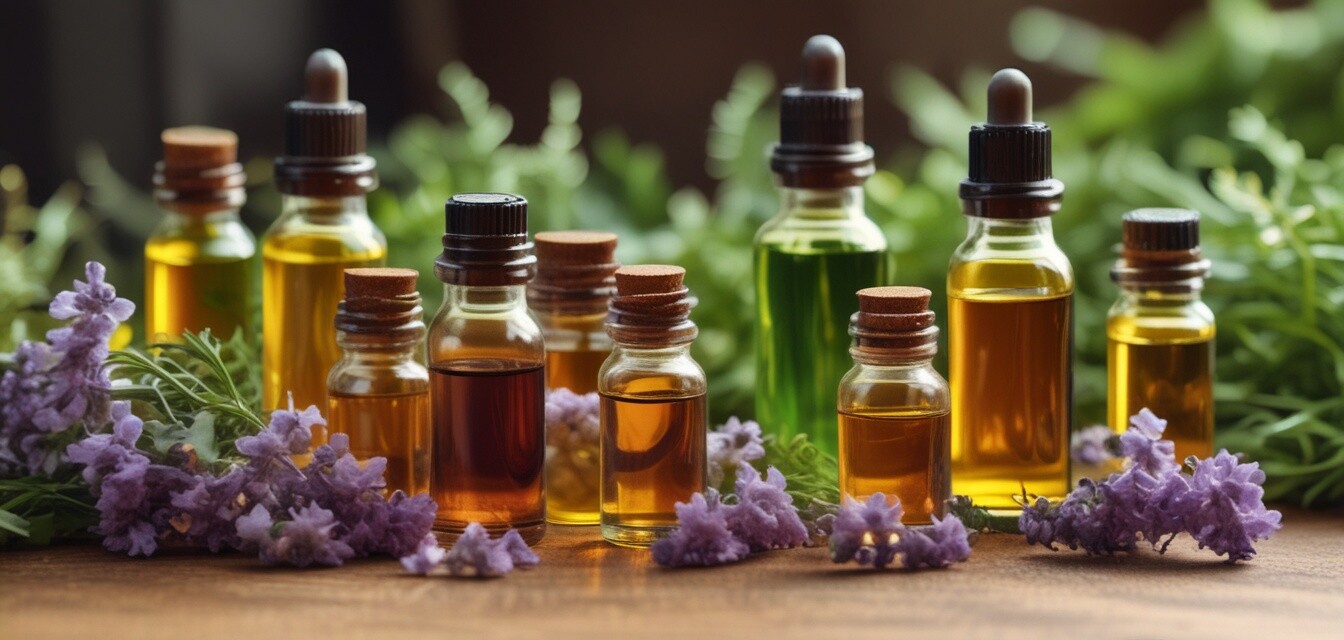
Essential Oils for Allergy Relief: A Complete Guide
- Essential oils can be useful for alleviating allergy symptoms.
- Popular options include peppermint, lavender, and eucalyptus oils.
- Application methods vary, including diffusion and topical use.
- Understanding usage and safety is crucial for effective relief.
Seasonal allergies can be incredibly bothersome, affecting your daily life and enjoyment of outdoor activities. Exploring natural options such as essential oils may bring you some comfort. This complete guide dives into various essential oils that could help alleviate allergy symptoms, detailing their application methods, precautions, and potential benefits.
Understanding essential oils
Essential oils are concentrated extracts from plants, capturing their natural aroma and beneficial properties. For allergy relief, these oils can have soothing effects on symptoms such as congestion, itchiness, and irritation. Let's look at some popular essential oils that may assist with seasonal allergies.
Popular essential oils for allergy relief
| Essential Oil | Potential Benefits | Application Methods |
|---|---|---|
| Peppermint Oil | May help clear sinuses and ease breathing | Diffusion, topical application with carrier oil |
| Lavender Oil | Could soothe respiratory discomfort and promote calmness | Diffusion, bath, topical application |
| Eucalyptus Oil | Known for its decongestant properties | Steam inhalation, diffusion, topical application |
| Tea Tree Oil | Possesses anti-inflammatory and antimicrobial properties | Topical application diluted with carrier oil |
| Lemon Oil | May help elevate mood and support a healthy respiratory system | Diffusion, topical application with carrier oil |
How to use essential oils for allergy relief
There are several safe and effective methods to incorporate essential oils into your routine when managing seasonal allergies. Below are a few popular methods:
Diffusion
Using a diffuser can help spread essential oils' aroma throughout a room. You can add a few drops of your chosen essential oil to a diffuser filled with water to enjoy their therapeutic benefits.
Topical application
Essential oils can also be applied directly to the skin, usually combined with a carrier oil, to minimize irritation. Common carrier oils include sweet almond oil, jojoba oil, and coconut oil. Always conduct a patch test before widespread use to ensure no skin reaction occurs.
Steam inhalation
For nasal congestion, you can add a few drops of essential oil to a bowl of hot water. Lean over the bowl with a towel over your head and inhale the steam for relief.
Safety tips when using essential oils
While essential oils can offer benefits, it's essential to use them safely. Here are some guidelines to consider:
- Always dilute essential oils with a carrier oil before topical application.
- Consult with a healthcare professional if you're pregnant, nursing, or have underlying health concerns.
- Keep oils away from sensitive areas such as eyes and mucous membranes.
- Ensure proper ventilation when diffusing essential oils to avoid overwhelming scents.
Combining essential oils with other allergy relief practices
Essential oils can complement other methods to manage seasonal allergies effectively. Consider combining essential oil usage with the following practices:
- Regular cleaning of your home to reduce allergens such as dust and pet dander. Check our guide on Tips and Best Practices.
- Use air purifiers to cleanse the indoor air (check our recommendations for air purifiers).
- Stay hydrated and maintain a healthy diet to support your immune system.
Pros
- Natural remedy with minimal side effects when used correctly.
- Variety of options allows for personal preference in scent and benefits.
- Can create a calming and pleasant environment at home.
Cons
- Not a substitute for medical treatment if symptoms are severe.
- Potential for allergic reactions or skin irritation.
- Limited scientific research supporting effectiveness.
Conclusion
Essential oils may provide a fragrant and soothing approach to alleviating seasonal allergy symptoms. While they should not replace medical advice or treatments, incorporating them into your daily routine could lead to enhancements in comfort and solace during allergy seasons. Always remember to prioritize safety and start with small amounts to gauge your body's reaction.
Further resources
For more detailed information and practical tips, check our in-depth articles on allergy medications and nasal & sinus care.